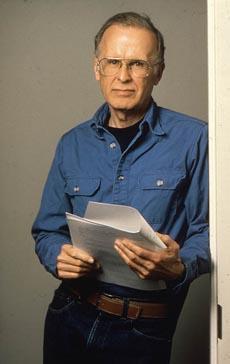John Backus (John Warner Backus)

John Warner Backus (December 3, 1924 – March 17, 2007) was an American computer scientist. He directed the team that invented and implemented FORTRAN, the first widely used high-level programming language, and was the inventor of the Backus–Naur form (BNF), a widely used notation to define formal language syntax. He later did research into the function-level programming paradigm, presenting his findings in his influential 1977 Turing Award lecture “Can Programming Be Liberated from the von Neumann Style?” The IEEE awarded John Backus the W. W. McDowell Award in 1967 for the development of FORTRAN. He received the National Medal of Science in 1975 and the 1977 ACM Turing Award “for profound, influential, and lasting contributions to the design of practical high-level programming systems, notably through his work on FORTRAN, and for publication of formal procedures for the specification of programming languages”. John Backus later worked on a function-level programming language known as FP, which was described in his Turing Award lecture “Can Programming be Liberated from the von Neumann Style?”. Sometimes viewed as Backus’s apology for creating Fortran, this paper did less to garner interest in the FP language than to spark research into functional programming in general. When Backus publicized the function-level style of programming, his message was mostly misunderstood as being the same as traditional functional programming style languages. FP was strongly inspired by Kenneth E. Iverson’s APL, even using a non-standard character set. An FP interpreter was distributed with the 4.2BSD Unix operating system, but there were relatively few implementations of the language, most of which were used for educational purposes. John Backus retired in 1991 and died at his home in Ashland, Oregon on March 17, 2007.
Born
- December, 03, 1924
- USA
- Philadelphia, Pennsylvania
Died
- March, 17, 2007
- USA
- Ashland, Oregon

